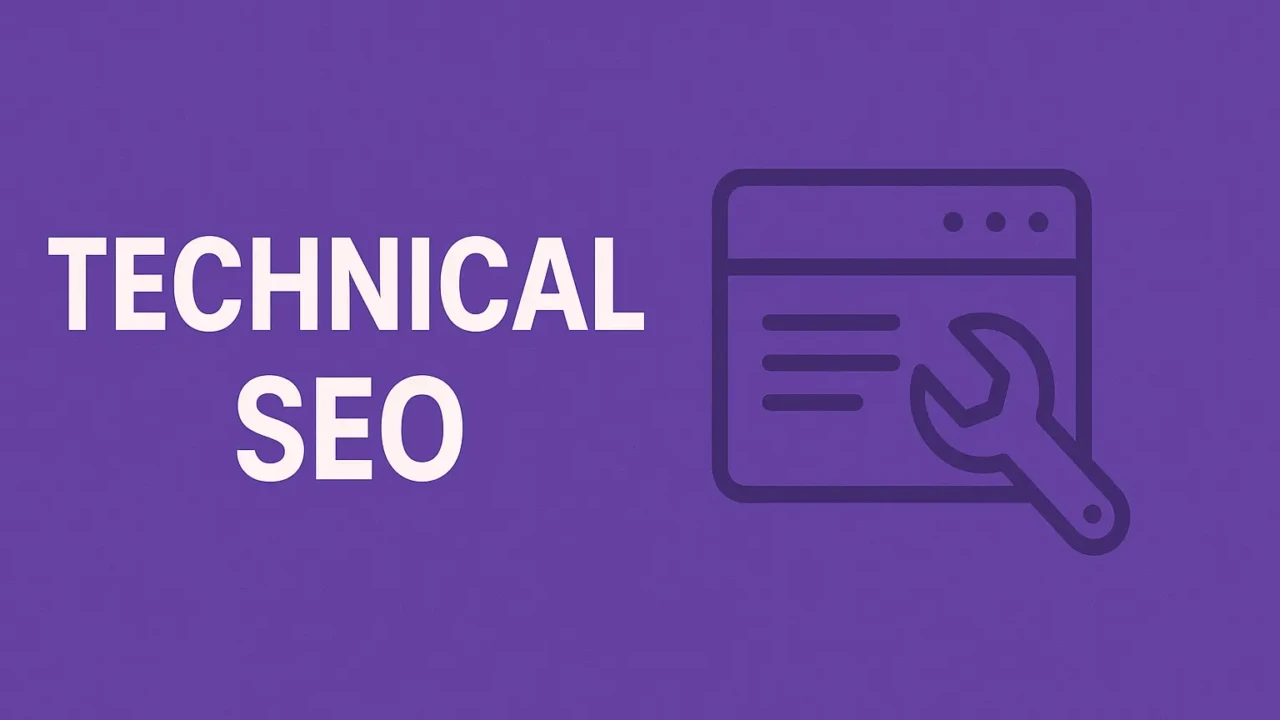Search Engine Optimization (SEO) covers a wide range of disciplines aimed at improving your website’s visibility and performance in search engines. Among them, technical SEO focuses on the foundation of your site, such as its infrastructure, architecture, and performance. This article outlines the principles of technical SEO and how to optimize your site for long-term success.
What is Technical SEO?
Technical SEO is the practice of optimizing a website’s technical elements to improve its search engine visibility and user experience.
It involves a range of tactics that help search engines crawl and index web pages more effectively, thereby improving search rankings and visibility.
Why is Technical SEO Important?
Imagine trying to read a book in the dark, or one with pages stuck together. That’s how search engines feel when trying to crawl a site with poor technical SEO.
Ensuring the technical health of your site makes it easier for search engines to access, crawl, interpret, and index it without issues.
Key Elements of Technical SEO
Technical SEO involves a wide range of tasks and considerations. The overall goal is to improve the technical functionality of your site, but it’s good to narrow down the endless possibilities to a few top priorities:
- Website Speed: Google values user experience, and a slow-loading site delivers a poor user experience. Factors affecting speed include server response time, large image files, and uncompressed CSS or JavaScript files.
- Mobile Optimization: With mobile searches outpacing desktop, having a mobile-optimized website is vital.
- XML Sitemaps: These guide search engines to the essential content on your site.
- Robots.txt File: This file instructs search engines on which pages or sections of your site shouldn’t be crawled.
- Structured Data: Provides search engines with additional information about your content, helping them better understand its context.
- HTTPS: An SSL certificate is essential, as Google considers HTTPS a ranking factor and warns users about non-HTTPS sites.
- Duplicate Content: Ensure your content is unique. Use canonical tags for unavoidable duplicates.
- Crawl Errors: Regularly check and address 404s and other server errors to ensure smooth crawling.
- Internal Linking: This enhances the SEO value of other pages and helps search engines understand your site’s structure.
- Hreflang Tags: Vital for sites targeting multiple languages or regions to ensure search engines serve the right version to searchers.
How to Get Started with Technical SEO
Embarking on the journey of technical SEO might seem daunting, but breaking it down into manageable steps can simplify the process:
- Begin with an Audit: Tools like Screaming Frog, Semrush, or Ahrefs can crawl your website and highlight technical issues that might impede its performance. This audit will provide a clear picture of your site’s technical standing.
- Address Immediate Concerns: Once the audit is complete, tackle the glaring issues. These could be broken links, slow-loading pages, or mobile optimization problems. Fixing these can bring about immediate improvements.
- Dive Deeper: Google Search Console is a free tool that provides insights into how Google sees your site. Look for crawl errors, examine your XML sitemap, and check for mobile usability issues.
- Optimize for Mobile: With significant web traffic from mobile devices, ensuring your website is mobile-friendly is non-negotiable. Use Google’s Mobile-Friendly Test to gauge your site’s performance on mobile devices.
- Invest in Speed: Page speed is a ranking factor and key to user experience. Tools like Google’s PageSpeed Insights and GTmetrix can provide actionable advice to speed up your website.
- Stay Updated & Educated: Regularly check trusted SEO blogs, forums, and websites such as Moz, Search Engine Land, and Search Engine Journal to stay up to date on the latest trends and best practices.
- Seek Expertise When Necessary: Technical SEO can be intricate. If you’re uncertain about certain aspects, consider seeking expert guidance or hiring professionals specializing in technical SEO.
Bottom Line
At first, technical SEO can feel overwhelming, but it’s what keeps your site running smoothly behind the scenes. When your website is easy to crawl, loads quickly, and is free of errors, your content and site can actually do their job and help you grow.




